[alert type=”muted” close=”false” heading=”Member Resource”]The following article is part of the FREE resources presented by ACN. More member resources can be found on our Member Resources page… [/alert]
Introduction
Starting new ventures are exciting and full of anticipation. However, there are several areas of information that you should be aware of when you start a new nonprofit. There are questions you must ask yourself first. “Why do you want to start a nonprofit?” “What kind of nonprofit structure are you wanting create?”, etc. There is really good information available to help you answer these important questions. We recommend you read through 10 Questions You Must Consider Before Starting a Nonprofit put together by Foundation Group.
Because the nonprofit sector includes 29 different categories within the 501(c) section of the IRS code, it is important that you know what you really want to do. ACN has put together a table of the nonprofit categories that as a resource.
The Basics
Section 501(c)(3) is the portion of the US Internal Revenue Code that allows for federal tax exemption of nonprofit organizations, specifically those that are considered public charities, private foundations or private operating foundations. It is regulated and administered by the US Department of Treasury through the Internal Revenue Service. This article is devoted to the 501(c)(3) designation.
Nonprofits are incorporated under the laws of the state in which they are established. To receive federal tax-exempt status, the organization must apply with the IRS. Two applications are required. First, you must request an Employer Identification Number (EIN) and then apply for recognition of exemption by filing Form 1023 (Charitable Organizations) or 1024 (Other Tax-Exempt Organizations), with the necessary filing fee.
The IRS identifies the different types of nonprofit organizations by the tax code by which they qualify for exempt status. One of the most common forms is 501(c)(3), which is set up to do charitable, educational, scientific, religious and literary work. This includes a wide range of organizations, from continuing education centers to outpatient clinics and hospitals.
Qualifying Entities
Entities that can seek 501(c)(3) determination from the IRS include corporations, trusts, community chests, LLCs[1], and unincorporated associations. The overwhelming majority of 501(c)(3) organizations are nonprofit corporations.
Provisions Unique to 501(c)(3)
One of the most distinct provisions unique to Section 501(c)(3) organizations as compared with other tax exempt entities is the tax deductibility of donations. 26 U.S.C. § 170, provides a deduction, for federal income tax purposes, for some donors who make charitable contributions to most types of 501(c)(3) organizations[2].
Other unique provisions tend to vary by state. Like federal law, most states allow for deductibility for state income tax purposes. Also, many states allow 501(c)(3) organizations to be exempt from sales tax on purchases, as well as exemption from property taxes. Special nonprofit, bulk rate postage discounts are available from the Post Office to qualifying organizations as well and will can be sought directly from the USPS or through your preferred mailing service.
Types of 501(c)(3) Organizations
501(c)(3) organizations fall into one of three primary categories: public charities, private foundations, and private operating foundations.
A public charity is generally defined by the IRS as “not a private foundation”. It receives a substantial portion of its revenue from the general public or from government. In order to remain a public charity (and not a private foundation), a 501(c)(3) must obtain at least 1/3 of its donated revenue from a fairly broad base of public support. Public support can be from individuals, companies and/or other public charities. Donations to public charities can be tax deductible to the individual donor up to 50% of the donor’s income[2,3]. Corporate limits are generally 10%[2,3]. In addition, public charities must maintain a governing body that is mostly made up of unrelated individuals[4]. Public charities are what most people recognize as those organizations with active programs. Examples include churches, benevolence organizations, animal welfare agencies, educational organizations, etc.
A private foundation is often referred to as a non-operating foundation, as in it typically does not have active programs. Revenue may come from a relatively small number of donors, even single donors. Private foundations are usually thought of as nonprofits which support the work of public charities through grants, though that is not always the case. Donations to private foundations can be tax deductible to the individual donor up to 30% of the donor’s income[2,3]. Governance of a private foundation can be much more closely held than in a public charity. A family foundation is an example of a private foundation.
The third category is the least common: private operating foundation. These organizations often maintain active programs similar to public charities, but may have attributes (such as close governance) similar to a foundation. As such, private operating foundations are often considered hybrids. Most of the earnings must go to the conduct of programs. Donation deductibility is similar to a public charity[2,3].
Restrictions on Activities
501(c)(3) organizations are highly regulated entities. Strict rules apply to both the activities and the governance of these organizations. No part of the activities or the net earnings can unfairly benefit any director, officer, or any private individual, and no officer or private individual can share in the distribution of any of the corporate assets in the event the organization shuts down.
Further, lobbying, propaganda or other legislative activity must be kept relatively insubstantial[5]. Intervention in political campaigns or the endorsement/anti-endorsement of candidates for public office is strictly prohibited.
Obtaining 501(c)(3) Status
In order for a corporation or other qualifying entity to receive 501(c)(3) status, it must apply to the IRS for recognition by filing Form 1023 (or Form 1023-EZ), Application for Recognition of Tax Exemption. The application is a thorough examination of the organization’s structure, governance and programs.
There are limitations on who can file a Form 1023-EZ however. If you qualify, it is an online form that must be completed. If you do not qualify to files the EZ form (with a cost half of the normal fee), then you must fill out the full Form 1023 – a much lengthier process.
Compliance
Having 501(c)(3) status comes with compliance requirements, the most obvious of which is operating the organization within the IRS regulations. If your nonprofit has revenues of more than $25,000 a year, you must file an annual report (Form 990) with the IRS. Form 990-EZ is a shortened version of 990 and is designed for use by small exempt organizations with total assets at the end of the year of less than $25,000. Form 990 asks you to provide information on the organization’s income, expenses and staff salaries that exceed $50,000. You also may have to comply with a similar state requirement. Additional compliance requirements exist at the state level and it is important that you recognize those requirements. Failure to be compliant in your state can cost you your federal tax-exempt status.
Footnotes
- Under very limited circumstances, LLCs can legally seek status as a 501(c)(3), tax-exempt organization. A qualifying LLC must have its entire membership made up of other recognized 501(c)(3) organizations. LLCs with individual or non-tax-exempt entity members cannot apply for status. LLCs are NOT eligible to file Form 1023-EZ.
- Regulations specify which such deductions must be verified in order to be allowed.
- Other tax and income circumstances can affect the deductibility of contributions to public charities.
- Unrelated can mean by blood, marriage and/or business.
- Some lobbying, both direct and grassroots, is allowable, but should not represent more than 10-20% of the organization’s activities, nor consume any more than 10-20% of the resources of the organization. Nonprofits that engage in lobbying activity are discouraged from filing Form 1023-EZ and should file a complete Form 1023.



